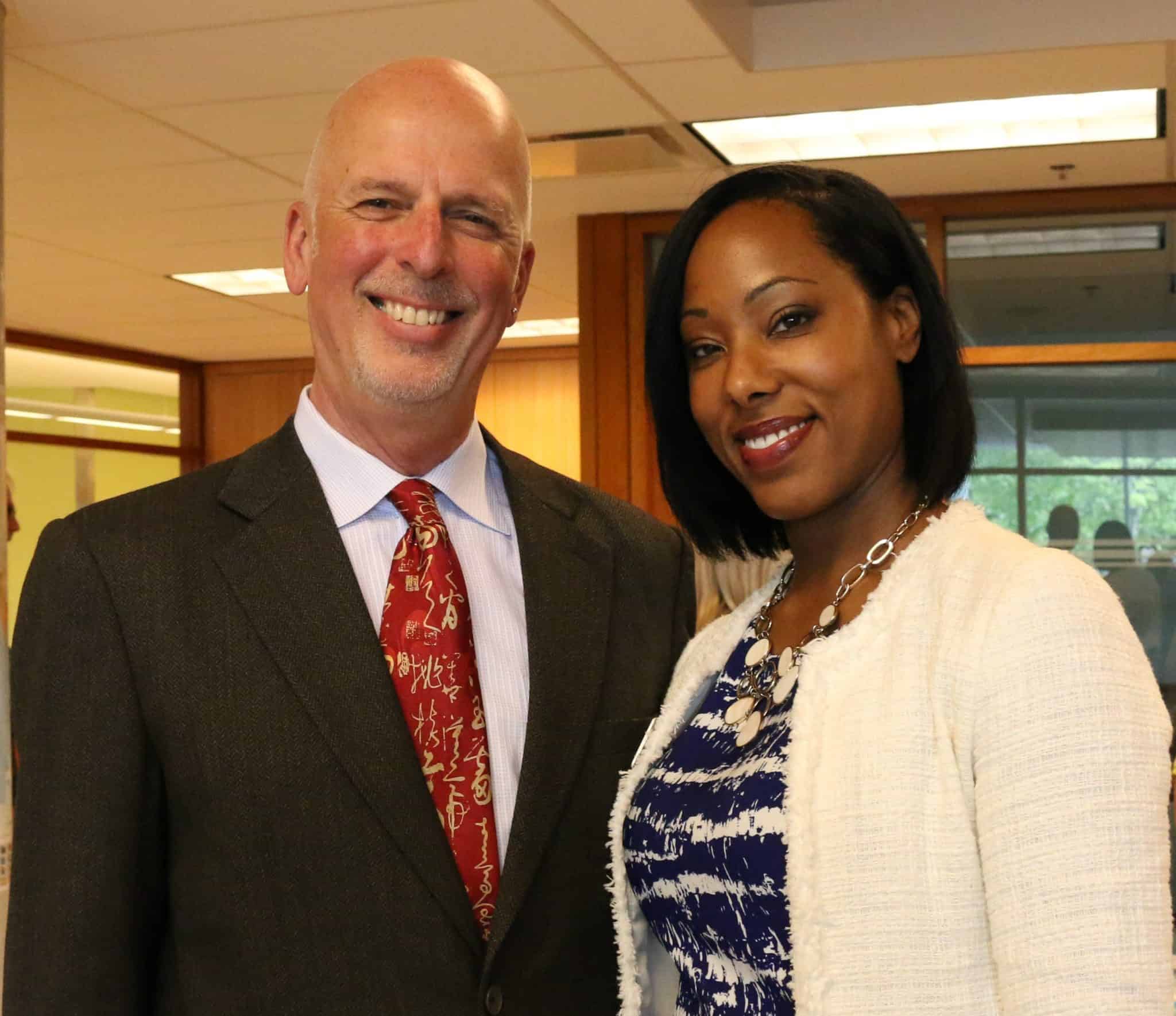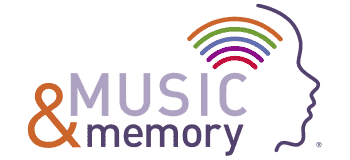
The evidence continues to mount: Musical favorites can bridge the divide between hopeless isolation and joyful social engagement for people with Alzheimer’s and other dementias and cognitive challenges.
According to a March 2014 evaluation of the Alzheimer Society of Toronto’s (AST) iPod Project, benefits of music and music therapy include “improved cognition, communication, and quality of life for older persons with ADOD [Alzheimer’s Disease or Dementia],” as well as “an improved ability to manage behavioural and psychological symptoms of dementia (BPSD) such as depression, anxiety, agitation and aggression.”
The study states unequivocally: “Personalized music works best. Not surprisingly, music that is familiar to and resonates with the older person seems to produce the most favorable outcomes.”
Personalized Music Gives Caregivers a Needed Respite
Led by Dr. Paul Williams, a team of researchers affiliated with the University of Toronto conducted the report and discovered some additional benefits of personalized music: Caregivers at home, who are often exhausted by their responsibilities for loved ones with ADOD, gain a much needed respite when the ones they care for listen to musical favorites. Not only does the music calm their loved ones; the caregivers also gain peaceful time to focus on daily household tasks or their own personal needs.
That adds up to significantly reduced stress for caregivers, who get a boost from seeing their loved ones uplifted by the music, as well as time to recharge.
The findings were a welcome surprise for Sabrina McCurbin, iPod project coordinator for AST. “We didn’t expect that the project would have such a huge impact,” says McCurbin. “It speaks to our mandate to improve the lives of people with dementia and their caregivers.”
AST’s iPod Project, conducted in collaboration with MUSIC & MEMORY®, is targeted at persons with ADOD living at home and their families, as well as those living in care facilities. The program also provides support for staff at MUSIC & MEMORY® Certified Care Facilities in the city.
Offered free of charge to persons with a formal diagnosis of dementia who live in Toronto (or if their caregivers reside within the city), the program currently enrolls 1,300. Participants receive an iPod loaded with their musical favorites, chosen with help from family and friends, and a pair of headphones. The recipient, caregivers and family members also have access to a social worker for support, group activities and other services.
Musical Favorites Soothe, Ease Transitions and Create Time for Self-Care
According to the study, caregiver focus groups emphasized the power of personalized music to help their loved ones reminisce about the past and reclaim cherished memories: “Caregivers told us that music helped engage cared-for persons and ‘gave them life.’ They described cared-for person who were previously withdrawn, tapping or dancing to music and visibly enjoying themselves. Some caregivers told us that these effects lasted after the music finished.”
The caregivers also found that personalized music helped them to accomplish activities of daily living. Providing the iPod during activities that might otherwise cause agitation, such as meals, traveling on public transportation or during household tasks such as vacuuming, served to calm their loved ones.
Quantitative findings underscored qualitative reports. A comparison of responses on the Caregiver Distress Scale between the beginning and end of the three-month study period uncovered two statistically significant results: Caregivers felt more able to engage socially. They also reported that their caregiving responsibilities created less of a negative impact on their personal life and health than before their loved ones had access to personalized music.
Powerful as these findings are for home- and community-based care, the report emphasizes that residents in long term care settings may have the greatest potential to benefit from personalized music. Given the prevalence of advanced Alzheimer’s and other dementias among nursing home residents, there are simply more opportunities to help more people.
A Beneficial, Low Cost Intervention with Little Risk of Harm
Not everyone benefits from personalized music. But the report concludes that “this low cost intervention offers a range of potential benefits with little risk of harm. This clearly distinguishes music from more costly interventions such as drug therapies and physical restraints which are widely used to manage individuals with responsive behaviours.”
For Sabrina McCurbin, the report reinforces AST’s goal to expand the iPod Project and build more links to the Toronto community. Next steps may include engaging additional community partners, such as adult day programs, memory clinics serving those with early stage dementia, and family doctors.
Volunteers are key to any expansion. Currently, a core group of 10 helps weekly with developing playlists, loading iPods and providing administrative support. McCurbin says the volunteers range in age from 14 to 60, with the teens coming from public high schools to fulfill community service requirements.
Even before the report was completed, McCurbin drew inspiration from the teen volunteers. “Often they’ll arrive with no interest in Alzheimer’s,” she says. “They think it’s boring, scary, an old person’s disease. But it always comes out that a grandparent or someone close has it.”
It’s the iPods that help bridge the gap of generational distance and fear about Alzheimer’s. One teen volunteer told McCurbin that he brought his grandmother an iPod loaded with her favorite music. She hadn’t been able to find the words to speak to him in two months. When he placed the headphones over her ears, she looked in his eyes and smiled at him the entire time the music was playing. His assessment: “Really cool!”
Just one of many anecdotes, now bolstered by solid research, for McCurbin, about the value of the iPod Project. With a dollop of understatement, she sums it up this way: “We’re doing something pretty good here!”
Founded in 2010, MUSIC & MEMORY® is a non-profit organization that brings personalized music into the lives of the elderly or infirm through digital music technology, vastly improving quality of life.
